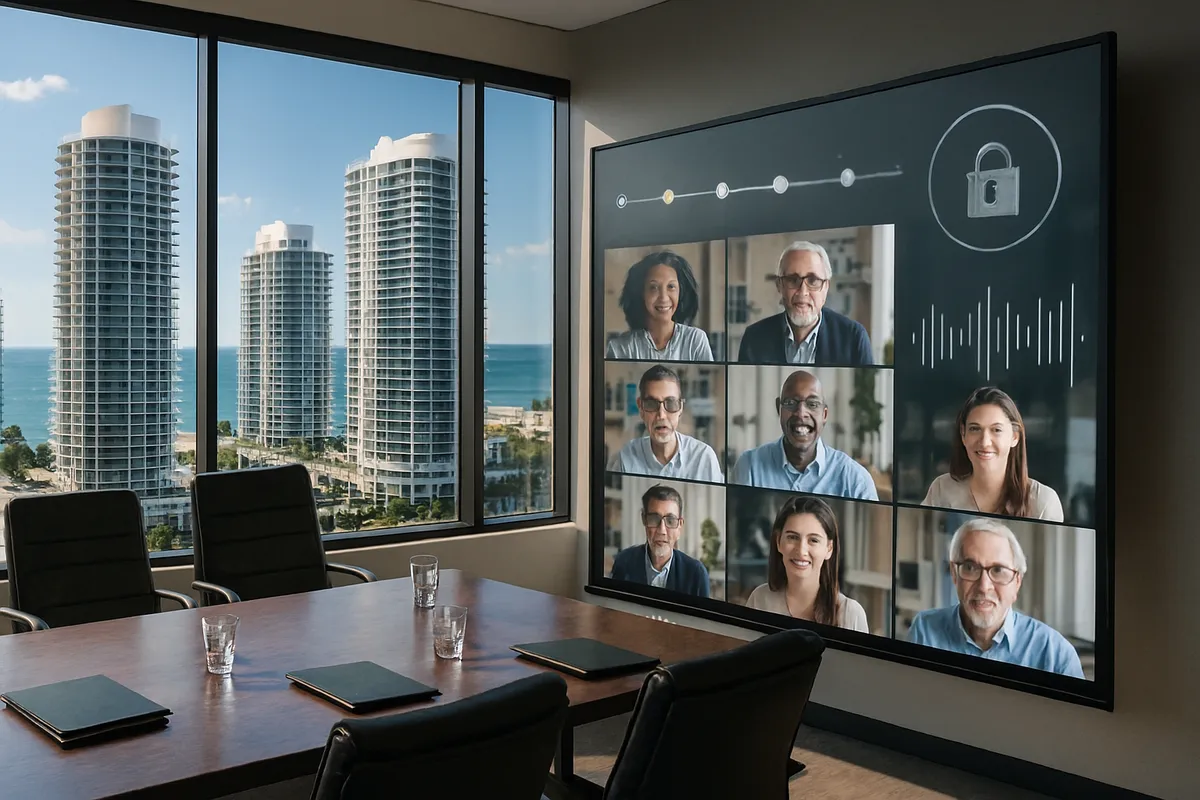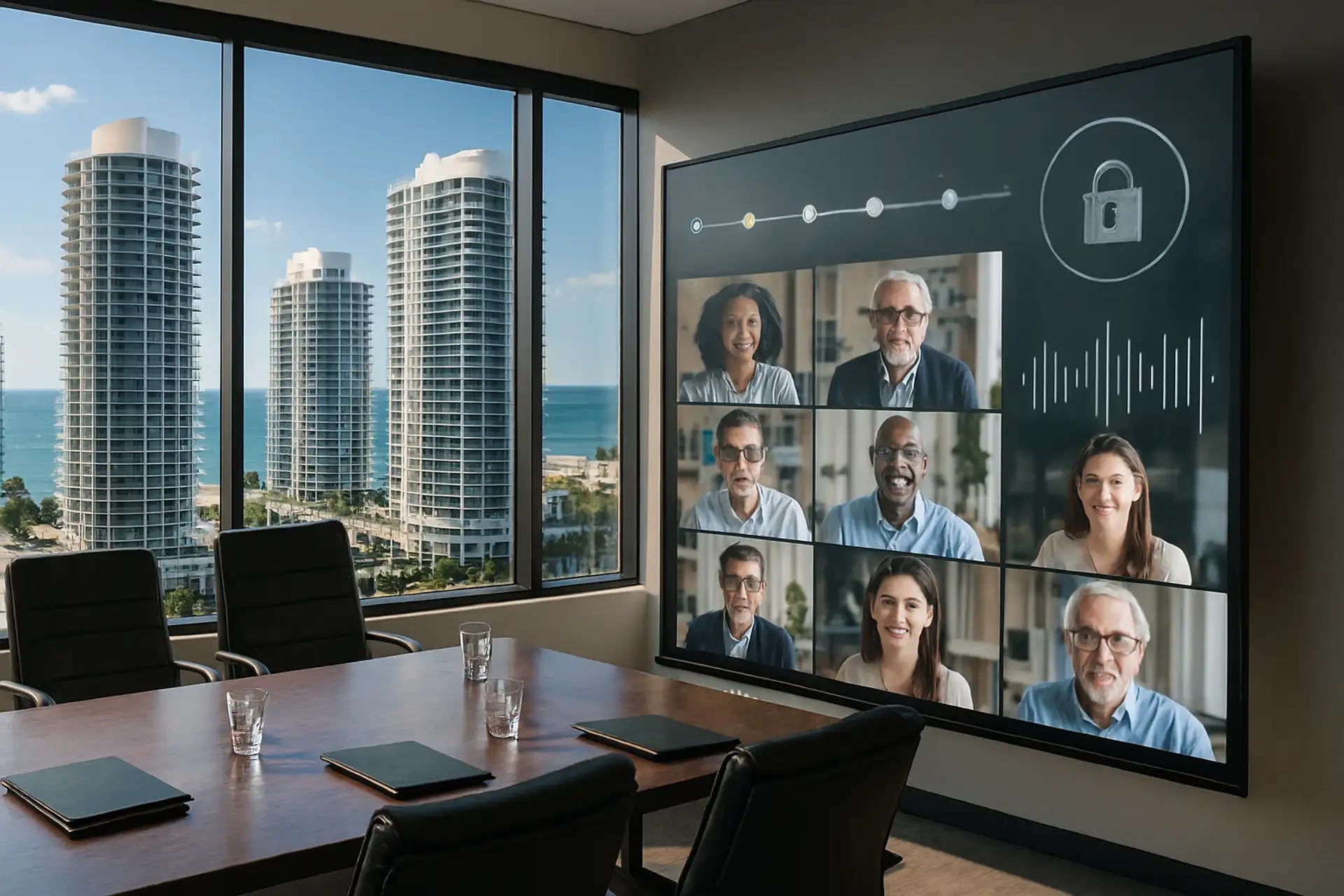Virtual Condo Board Meetings and HB 913: What You Need to Know About Recording and Posting Requirements
July 31, 2025

Virtual Condo Board Meetings and HB 913: What You Need to Know About Recording and Posting Requirements
Table of Contents
- Why Virtual Meetings Fall Under HB 913
- Recording and Posting Requirements
- Audibility, Access, and Archiving
- How to Comply With Confidence
- Final Thoughts
Why Virtual Meetings Fall Under HB 913
As more condo boards adopt Zoom, Teams, and Webex for their meetings, Florida’s HB 913 ensures those meetings do not escape public record laws.
Effective January 1, 2026, virtual board meetings must meet the same documentation, approval, and public access requirements as in-person meetings — including the posting of recordings when decisions are made.
“A meeting of the board of administration… must be recorded and made available to unit owners if conducted using communication media technology.”
— Florida Statute § 718.112(2)(c)
Boards that fail to comply with this provision risk DBPR penalties and potential civil disputes.
Recording and Posting Requirements
HB 913 expands official record definitions to include:
- ✅ Video and audio recordings of virtual board meetings
- ✅ Timestamps aligned with the meeting agenda
- ✅ A public link to the recording, accessible through your official portal
The law requires that recordings be posted in the same place and within the same 30-day window as board meeting minutes.
Failure to do so may result in complaints to the Florida DBPR and legal exposure for withholding access.
Audibility, Access, and Archiving
✅ Mutual Audibility Is Mandatory
Your meeting must be conducted in a way that:
- Allows all participants to hear and speak
- Records full participation
- Ensures no participant is muted or excluded from discussion
“Boards must ensure that two-way, mutual audibility is preserved throughout any virtual meeting for it to be valid.”
— Florida Senate HB 913 Analysis Summary
✅ Recordings Must Be Public
HB 913 assumes that the recording is part of the official record. This means:
- Recordings cannot be behind a login wall
- They must be accessible on demand
- They must be paired with meeting minutes
✅ Minimum Archive Period
Boards must retain and display virtual meeting recordings for at least 12 months — in addition to the 12-month archive of approved minutes.
How to Comply With Confidence
✅ Use a Platform That Records and Stores
Not all video tools are created equal. Some don’t offer downloadable recordings or timestamped logs. Use a solution designed for public sector or compliance use cases.
✅ Tie the Recording to the Agenda
Link each recording to the meeting agenda and minutes page, so owners can:
- Watch the video
- See what was decided
- Cross-reference motions and outcomes
📘 Want a plain-English guide to everything HB 913 requires?
👉 Learn What HB 913 Requires →
✅ Test Public Access
Verify your links work from any browser, mobile device, or public IP — and do not require owner login or third-party registration.
Final Thoughts
Virtual meetings offer flexibility and safety — but under HB 913, they come with new responsibilities. Your board must treat every online meeting like it’s being watched — because legally, it is.
Don’t risk noncompliance because of a broken link or forgotten recording.
👉 Start Your Free Trial →
We automate the full HB 913 workflow for virtual meetings, document posting, and archival — so your board is always compliant.
Stay transparent. Stay protected. Stay ahead of HB 913.

